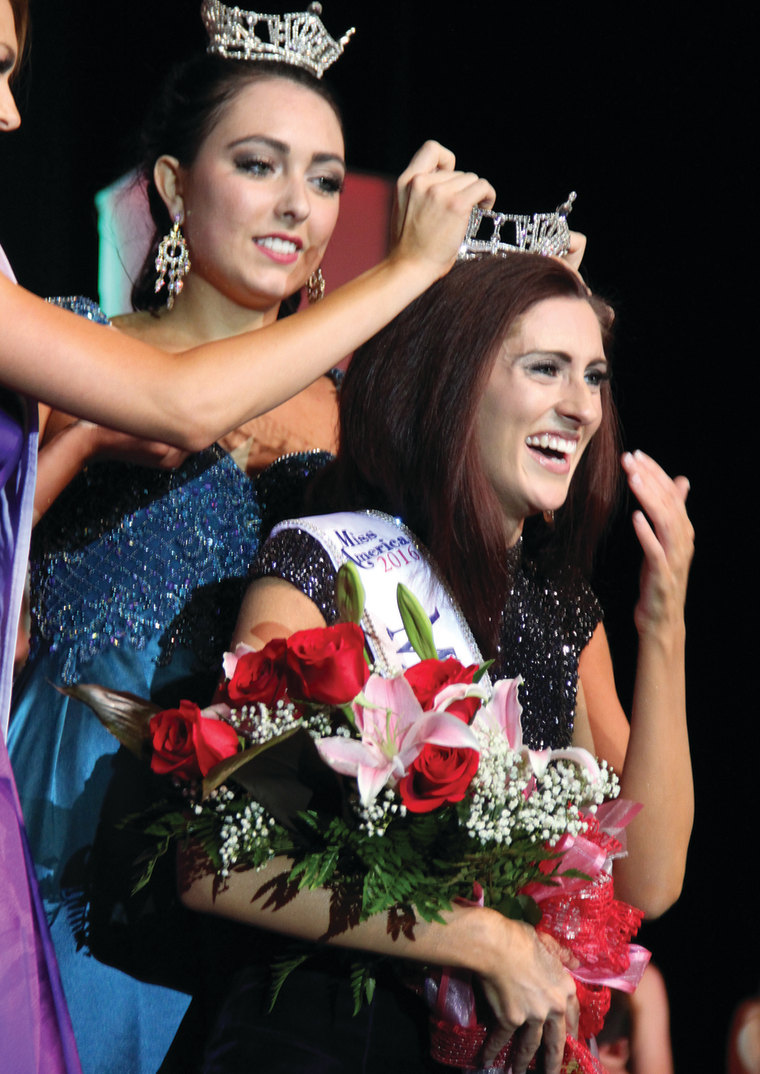As a Generation X gay man, I’ve witnessed the queer community from the mid-1970’s through the next forty years, and it amazes me the changes that we’ve seen. Obviously, life isn’t perfect, especially when you look at LGBT lives globally. And yet, it still comes as something of a surprise when we encounter another “first.”
Last month, we learned the 2016 Miss America pageant will feature the first openly lesbian contestant in its history. Erin O’Flaherty won the title of Miss Missouri on June 18. She says she has no plans to avoid the topic of her sexual orientation during her run (she came out at the age of 18), but neither does she plan to limit the scope of her platform to the queer community.
I admit to having mixed feelings about this story. First, there’s a voice in the back of my head saying, “it’s a beauty pageant, it’s fun; please don’t overthink this.” But there’s a slightly louder voice who insists that these “pop culture” moments matter, that when the annals of queer history are written, the coming out of a character on a sitcom will be considered as important, if not more so, than seemingly more important events, such as legal decisions and political maneuvers.
So if that’s true, what does it matter that a lesbian will be competing for that most iconic tiara in the pantheon of pageantry? Well, it’s progress, right? Maybe. Maybe not.

Upon hearing the news, I’m embarrassed to admit that the first thing I did was seek out a photo of Miss O’Flaherty. I’m not sure what I was expecting. Shorter hair than your stereotypical beauty queen, perhaps? Something in her attitude that suggests she’s not here for the heterosexual male gaze, and she’ll smile when and if she wants to, thankyouverymuch. And after a quick image search, I discovered that … she’s lovely. She has flowing auburn hair, gray eyes, and a willing wide smile that features perfectly white teeth. And while such details are not the most important attributes of any person, we are talking about a beauty pageant, right? So that matters.
Okay, so she looks exactly like we expect a beauty queen to look. That’s a good thing, isn’t it? Because she’s not exactly like every other beauty queen; she’s one of ours – and she can help all of us, straight and queer alike, expand our notion of what it is to be a lesbian, and it’s not like there haven’t been really femme lesbians since the dawn of time.
And yet, there’s something about this whole situation that makes me uneasy. It rankles my feminist heart. And I think I know why. And yes, I am a gay man. And, I am a feminist. And if you think that means that I’m an ally to the 51% of the global population who are women, that’s true. But it’s only part of the story. I’m a feminist, but mostly due to pure self-interest.
I should explain. When we’re born into this world, I think it’s still safe to say that we’re widely assumed to be heterosexual, and yet hardly anyone thinks about infants in terms of sexuality. But what almost no one has a problem doing to infants is gendering them. Those babies who are assigned male at birth go home wrapped in little blue blankets and those who are assigned female are swaddled in pink, and the process of gendering begins before that infant can learn to speak. We expect boys to be rambunctious and girls to be sugar and spice and everything nice. By the age of seven or eight, our society’s reinforcement of gender roles causes our young boys to suppress their emotions and our young girls to suppress their ambitions.
Homophobia is, if nothing else, a reaction to boys, girls, men, and women from straying too far from the rigid gender roles we’ve created for them, which are fully manifested in the archetypal heterosexual romance, featuring a stoic but dominant male and the more submissive, nurturing female.
And so, if the queer community is to be free, it’s not just about the freedom to love whomever we wish; the bigger fight, for all of us, is to be whomever we wish. We need to smash to bits the notion that there’s only one way to be male and only one way to be female. That’s feminism in a nutshell.
Which brings me back to Miss America. Don’t get me wrong; I’m happy for Erin O’Flaherty, and I hope that she accomplishes many good things during her year-long reign as Miss Missouri (and who knows, perhaps even Miss America). I hope that her presence expands the hearts of minds of the people she meets along the way. And I don’t need her to be a pixie-cut sporting, flannel wearing, outdoorsy soft butch in order to cater to my stereotypical view of what it means to be a lesbian. But until the Miss America pageant can celebrate a butch woman with short hair, clad in flannel – or let’s be honest, until the nation’s largest provider of scholarship assistance to young women no longer scrutinizes the way their beneficiaries look in a swimsuit – it’s part of the bigger problem, and it’s something that’s difficult for me to celebrate.
The world is changing. Our institutions are changing. For the first time in American history, a woman is the nominee of a major political party. For a year now, same-sex couples have been able to marry in all 50 states. For a month, transgender soldiers have been able serve without fear of being found out and discharged. Perhaps one day, we’ll be able to put this particular institution to rest, too. Hey, a guy can dream.
Eric Peterson has been an educator and consultant on diversity and inclusion issues for 17 years. He lives in Washington, DC.

